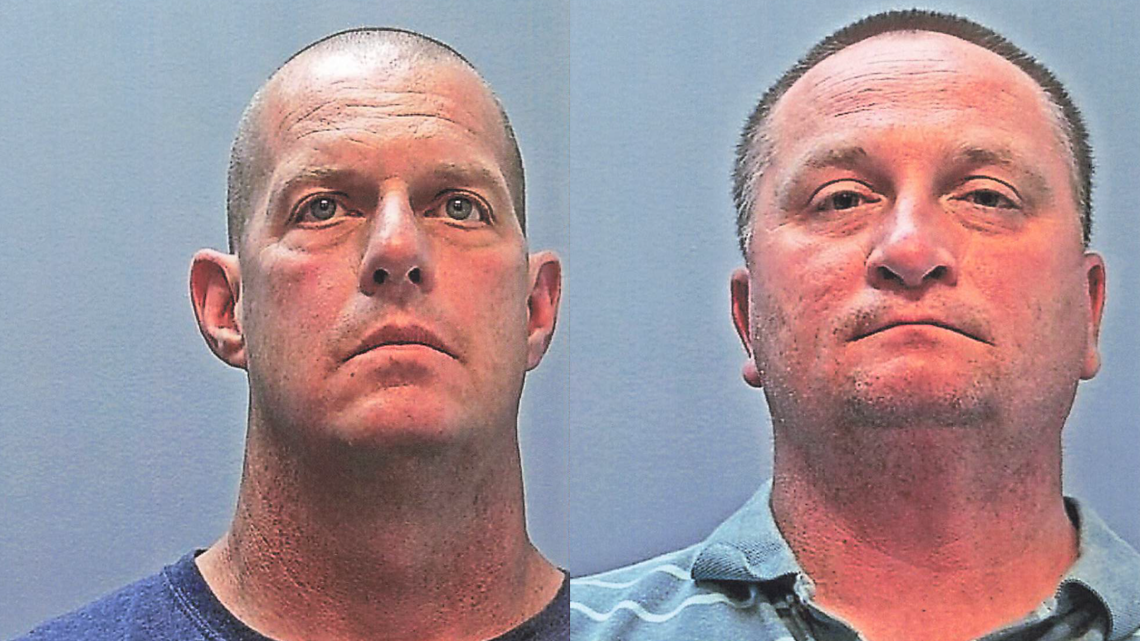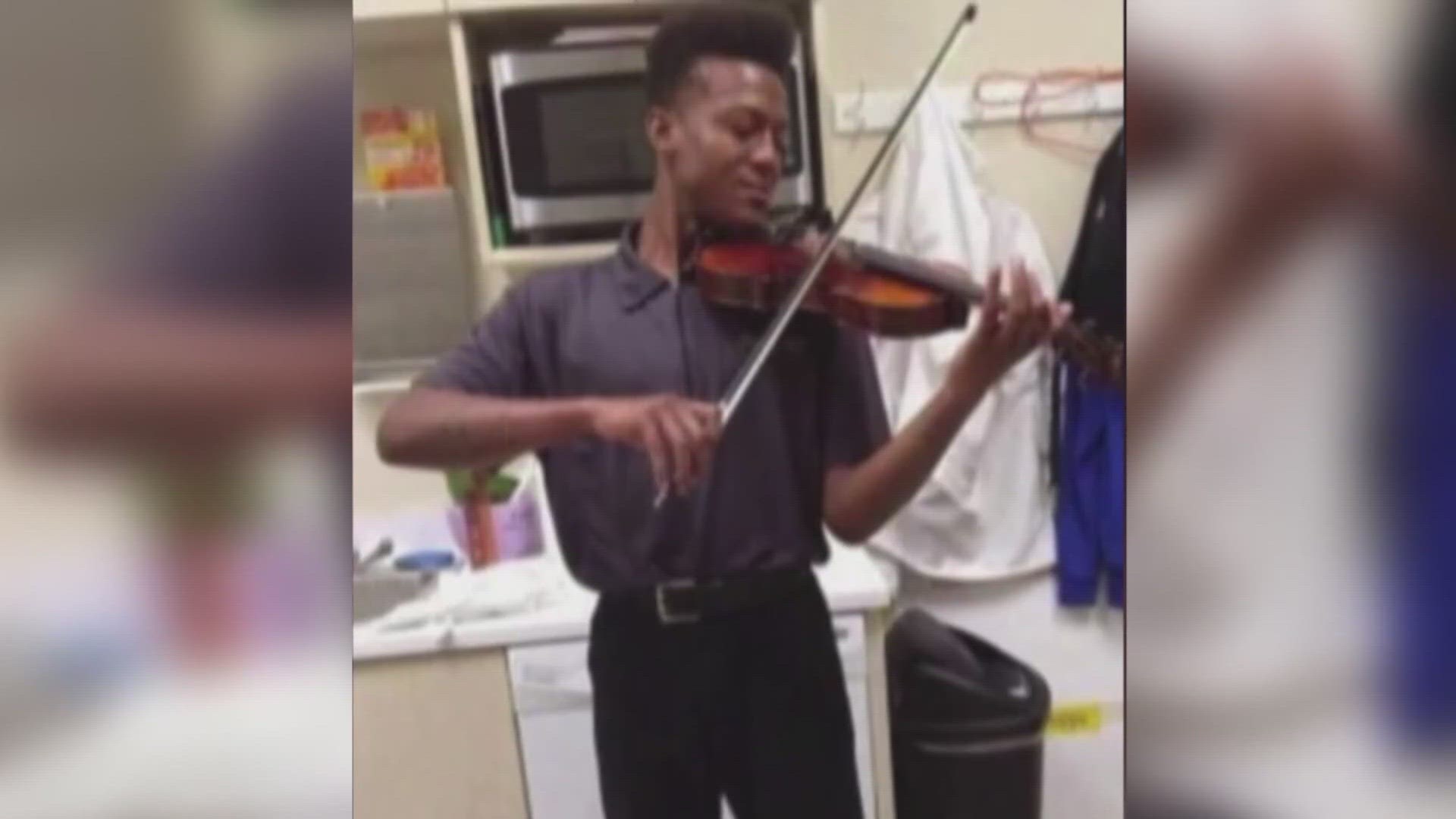BRIGHTON, Colo. — A medical expert on Friday spent hours telling jurors about the declining health of Elijah McClain following his struggle with Aurora police officers but before he was injected with the powerful sedative ketamine.
"He needed medical attention right there on the ground before he was given ketamine. He needed emergent medical attention at that point. So I would have called 911, at that point, to get him to a hospital," said Dr. David Beuther from National Jewish Health.
"So I don’t think the right answer was to not have paramedics - the right answer was not to give the ketamine."
Officers first contacted McClain on Aug. 24, 2019, after a teenage boy called 911 and relayed that he saw McClain wearing a coat and mask and acting "suspicious." Within seconds, Nathan Woodyard, the first officer to arrive, grabbed McClain. He and officers Randy Roedema and Jason Rosenblatt then took McClain to the ground in a struggle.
During the struggle, Woodyard used a carotid hold on McClain, a maneuver that caused him to lose consciousness briefly. Afterward, McClain was handcuffed and restrained on the ground for more than 10 minutes.
Later that same night, paramedics Cooper and Cichuniec injected McClain with ketamine. His heart stopped and he later died.


Beuther, a pulmonary and critical care specialist, began his testimony on Thursday. On Friday, prosecutors played video footage from throughout the evening and asked Beuther to describe what he observed about McClain.
They started with a video of McClain making purchases at a Shell convenience store before he encountered officers and Beuther described McClain as "normal" and explained that he did not appear to be experiencing any health issues.
Jurors were then shown body-worn camera footage showing how the incident progressed. Beuther testified that McClain could be seen going downhill and becoming less responsive. He believed that was because of several medical issues.
They included acidosis - or a build-up of acid in the blood from the struggle, and hypoxia - or a lack of oxygen. He also said it was evident to him that McClain had swallowed vomit into his lungs - based on evidence that he had thrown up while wearing his mask.
Eventually, he described McClain's condition just before he was injected with 500 milligrams of ketamine - a dose that was much too large based on McClain's weight.
"Medically as they’re moving him back and forth, he’s really sedated at this point. There’s not very much movement, where he had opportunity to move. He’s not verbalizing - although at this time they’re not asking him a lot of questions," Beuther said.
"So he seems pretty calm and less talkative. This would be the goal of sedation where he is right now."
"But at this point has ketamine been given?" asked prosecutors.
"No," Beuther replied.
Beuther was also critical of the lack of monitoring after the ketamine - and said proper monitoring is key to preventing negative outcomes.
"We can give people a completely normal, safe amount of medication and they can have a bad response or we can give people too much medication sometimes," said Beuther. "But if we can recognize that there’s a problem with the breathing and if we can both recognize and intervene, in a timely manner, we can prevent a mild problem from becoming a severe problem. Then what you will have is a patient that will do just fine but suffered a minor sedation complication."
Based on the videos he watched, Beuther said he noticed "impending respiratory failure" about two minutes after McClain got the ketamine. He said, however, there was a six-minute period after the drug was given when no one appeared to be monitoring McClain's pulse or breathing.
By then, he said it was too late, despite saying a "great job' was done in the ambulance to save McClain's life with CPR.
During cross-examination, defense attorneys pointed out that Beuther, as a doctor, had a higher level of training and expertise than anyone who responded to the scene.
They also pointed out that he had never served as a paramedic and was not considered an expert in pre-hospital care.


The final witness of the day on Friday was Daniel DeJesus, one of two EMTs who responded to the scene on the engine with Cooper and Cichuniec.
He explained that he served as the engineer that night, and drove the truck to the scene and took notes on a computer as the "scribe." He said Cooper was the paramedic and Cichuniec was a lieutenant.
DeJesus said that only paramedics, who have a higher level of training than EMTs, were allowed to administer ketamine. He described Cooper and Cichuniec as his superiors.
He often responded to questions by saying his memory was "hazy" or that he "couldn't recall," but prosecutors honed in on the lack of action of paramedics.
"Did he [Cooper] ask you to open the orange trauma kit and get anything out to help? asked Krista Batchelder, first assistant attorney general.
"No," DeJesus responded
"You’ve been told that Elijah had been vomiting. Did anyone go and get anything to help suction?"
"No."
"Was anything done to check his airway?" Batchelder asked.
"No, nothing was done to check his airway."
"So at this point has there been any sort of verbal assessment with Elijah McClain speaking back and forth?
"No, it’s just been visual assessments," DeJesus replied.
He also testified about a Patient Care Report that detailed the medical interventions that were done. It was listed in chronological order, with the first thing listed as ketamine. The next item listed was oxygen, and according to the report it was not administered until six minutes after the ketamine.
DeJesus is set to return to the witness stand at 9:30 a.m. Monday when the trial resumes.
The paramedics are the last two of the five men indicted in McClain's death to go to trial. In the first trial, a jury returned a split verdict for Aurora officers Randy Roedema and Jason Rosenblatt. Roedema was found guilty of criminally negligent homicide and third-degree assault and will be sentenced in January. That same jury acquitted Rosenblatt of all charges.
A separate jury acquitted Aurora officer Nathan Woodyard. Following his acquittal he was eligible to return to Aurora Police and in late November the city confirmed he elected to reintegrate with the department and was on restricted duty.
SUGGESTED VIDEOS: Elijah McClain death

